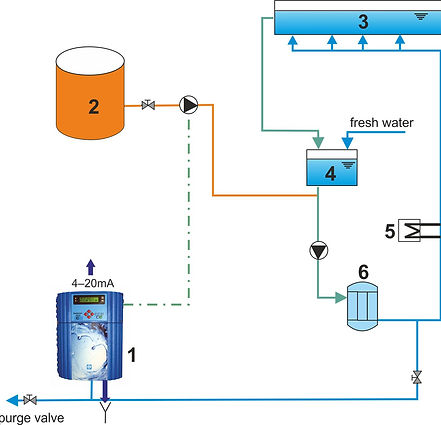
Swimming Pools
Concept Solution for Swimming Pools
Monitoring carbonate hardness in a swimming pool's water cycle:
The often underestimated significance of insufficient acid capacity can have profound implications on both water treatment and quality. In the realm of swimming pools, inadequate acid capacity poses a challenge to pH stabilization, directly impacting the effectiveness of filtration and disinfection processes.
Furthermore, low acid capacity accelerates corrosion in water-exposed components, particularly in environments where water exhibits increased aggressiveness. This corrosion risk extends to metal components, concrete water tank erosion, and the deterioration of tile gaps.
Adhering to various regulations, it is recommended to conduct weekly acid capacity checks to ensure precise control over water quality and surface conditions. The suggested acid capacity limits are 0.3 mmol for hot tubs and 0.7 mmol for pools, with the optimal range falling between 1.5 to 2.0 mmol.
Experience the efficiency of automated acid capacity stabilization through our Testomat® ECO C online analysis system. Ensure the longevity of your water infrastructure and maintain optimal water quality with our advanced solutions.

1 Monitoring carbonate hardness Testomat ECO® C
2 Hardness increase sodium bicarbonate
3 Swimming pool
4 Gushing water container
5 Heat exchangers
6 Filters

